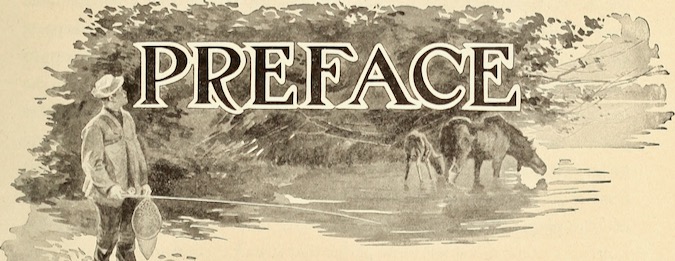Metadata 101: How to Request Endorsements, Forewords and Prefaces for New Books

Now, it’s time for the fun part of a book launch!
This is the point, close to completing a book, when we summon our allies and angels to help us. If our invitations are sincere, these friends will respond with best wishes—even if they are unable to help write an endorsement at the moment. In 11 years of making these requests, I’ve received only kind words in response.
(For a more in-depth look at the importance of what our team calls Allies and Angels,
please see this earlier column, which includes a PDF-copy of a magazine article about our work from the Independent Book Publishers Association magazine.)
In this column, let’s focus on how we request Forewords,
Prefaces
and Endorsements
from allies to complete an upcoming book. These pieces also become a key part of the book’s metadata file.
If an ally will write a short note of endorsement (or a full-scale Foreword or Preface), we can use the best lines in several ways:
- These pieces can be excerpted (or quoted in full, if they are short) on the book’s back cover.
- Endorsements also can appear in opening pages of the book under a heading:
Advance Praise
- We usually quote the best lines from our allies in the book’s Long Description, which appears in our metadata files and then is displayed in most online bookstores.
- Metadata also includes a field for what Amazon calls
Editorial Reviews,
if some of our endorsements would appropriately fit under that heading. (Note: We also can update metadata after a book is released to quote from reviews in websites, newspapers or magazines.) - Finally, the writer of a full-scale Foreword or Preface is lending his or her name to the new book in a special way.

What’s the Difference Between a Foreword and a Preface?
The traditional distinction between a Foreword and Preface is that a Foreword is written by someone other than the author, usually describing a personal interest in the book—while a Preface is written by the author. However, these days, the terms have become more fluid, because publishers recognize that the name of a famous person who writes a full-scale Foreword or Preface boosts your book’s discoverability.
That’s the publishing-industry term for the challenge we face in helping potential readers discover that your book exists.
When you ask a noted person to write a Foreword or Preface, you are asking that person to lend their name to the promotion of your book in a powerful way. If potential readers search for that person’s name on Amazon, or any online bookstore, your book will show up in the page of listings along with books by or about them.
This is a special way that public figures who care deeply about cooperatively lifting up new writers can put their fame to good use.
Remember: These requests are sincere invitations, asking potential allies to help. We believe that your book is advancing overall awareness about a particular subject. We are asking like-minded colleagues to help others discover your new book. Often, you will be surprised by the public figures willing to extend an encouraging hand, at least a few words about your book—and perhaps their full-scale efforts in a Foreword or Preface.
What is an Introduction to a Book?
Most traditional descriptions of the Front Matter for a book describe the order of opening pieces in this way:
- Foreword comes first. It’s usually the most eye-catching, engaging piece designed to personally draw readers into the book’s pages. Foreword writers often include personal stories related to the author, the book or the subject.
- Preface comes next. Think of this as an usher’s introduction to bring you further into the “theater” represented in this new book. For example, a Preface is more likely than a Foreword to fill in relevant background information you’ll want to know to understand the book. A Preface comfortably prepares you for the full effect of the narrative that’s about to unfold.
- Introduction appears in third place. Traditional descriptions of Front Matter say an Introduction is usually written by the author. Like a lot of other publishing houses these days, we don’t always follow that pattern. Sometimes, we find a third ally is best equipped to write the Introduction. Think of the Introduction as the last words you want readers to consider before that first sentence in Chapter 1.
There is no formal rule on the length of these pieces. At Front Edge, we routinely tell authors:
We are looking for a minimum of 500 words for an opening piece. We can easily accommodate a longer piece, but an authentic Foreword or Preface really needs to be at least 500 words.
On occasion, we have published a Foreword or Preface shorter than 500 words, but we request at least 500 words
so the person writing a Foreword or Preface understands that we sincerely want them to say something valuable that will engage and help readers.
Through the progression of these pieces, the idea is to warm readers to the enjoyment of your book. Often, our publishing team omits one or two of these three options in the Front Matter. However, even if we include all three pieces, we are not slowing down readers—we’re always trying to help them. If readers are eager to jump to Chapter 1 immediately, they can easily do that—in fact, it’s just a click away in an eBook. Through the opening pieces, we are giving readers a chance to get on board with this adventure, feel welcomed by our allies, settle into their seats and know enough to really savor your first chapter.
How Should an Author Request a Foreword or Preface?
My own emails to potential allies often start something like this:
I know you're busy, but I also know that you'll want to be aware of the new book, [Title], which is close to the work you've been doing on … I am hoping you can find time to look at the PDF I'm attaching and would consider writing an opening piece for this book. We know that adding your insights and your name to the opening pages of the book would help other readers find this new book. Do you have time to consider this request?
In writing such a note, I always include these elements:
- We know you’re busy. Time is valuable and we need to acknowledge right away that we’re asking a favor, even if that person just spends a few minutes looking over the request.
- We share values in this project. We care about an important issue or theme—and they do, too. Taking time to write a Foreword or Preface can help all of us increase national awareness on an issue close to our hearts.
- If there is a particular personal connection, we acknowledge that. Perhaps this person is a relative, a colleague, a member of the same profession or a volunteer in the same nonprofit. This person may already be working as an ally and we need to thankfully note that we’re aware of that connection.
- We ask for
an opening piece,
not specifically a Foreword or Preface. We usually are trying to get both for a new book. Sometimes, when we see the final texts, we want the flexibility to switch the labels we had originally planned to use. - I don’t always attach a PDF proof of the upcoming book. Sometimes, I attach a particular chapter and a Table of Contents. Sometimes, I attach a Long Description of the book. However, since people are busy, I often do include a PDF proof of the book, so the person has all that’s needed to make a decision.
What’s an Endorsement?

Sometimes, they’re called book blurbs
or testimonials.
An endorsement is an easy way an ally can encourage people to take a chance on buying your book.
We usually tell people: An endorsement can be a sentence or a paragraph.
Occasionally, we get endorsements longer than that. We welcome the additional effort and try to publish the full endorsement either in the Advance Praise page or on our website or in our social media.
When requesting endorsements, we ask the contributors to confirm the spelling of their names, any title we should use, and a biographical line (as short as a phrase or as long as a sentence) describing their relevance to the book’s subject.
We always hope to assemble an Advance Praise page that surprises readers, perhaps by the breadth of the backgrounds represented in the endorsements. Seeing different kinds of people chiming in with words of encouragement can give readers fresh ideas about who might enjoy the book.
Care to Read More?
This is part 4 of our Metadata 101 series
- Part 1
- How to create book metadata that will increase discoverability and enhance your marketing
- Part 2
- How to Write a Great Short and Long Description of your Book
- Part 3
- Determining binding, paper and color options for a printed book
- Part 4
- How to Request Endorsements, Forewords and Prefaces for New Books
- Part 5
- How do I find BISAC codes for a new book? 5 Tips for Success
- Part 6
- What are the different kinds of eBook formats? And, how do I make eBooks?
- Part 7
- Should we mention my dog? The Art of the Author Bio
- Part 8
- What should I call my book? The Art of Creating a Title and Subtitle
- Part 9
- Metadata by the numbers: What is an ISBN?